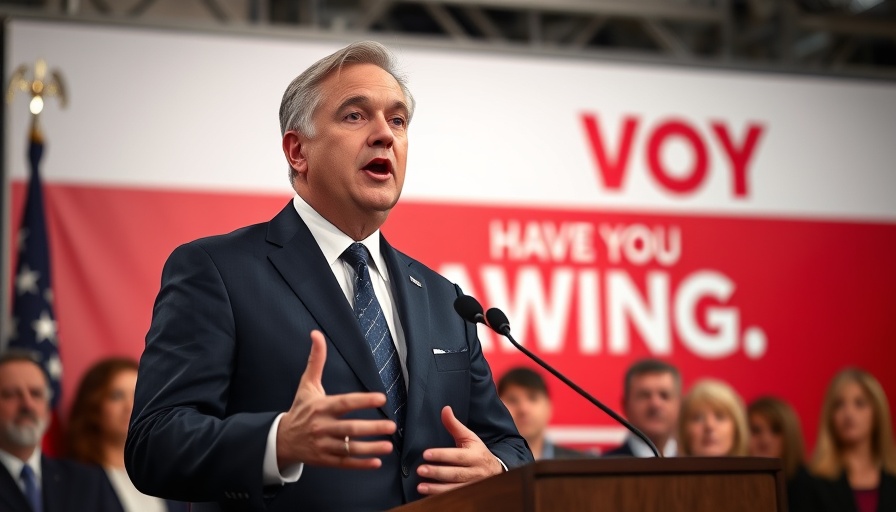
How Trump’s Influence Looms in Canadian Politics
The recent Canadian elections have stirred discussions around the perceived influence of Donald Trump on Prime Minister Mark Carney's victory. As eloquently discussed in a recent report, Carney didn't shy away from addressing the elephant in the room during his victory rally. He implied that Canada must shift its perception and approach toward the United States, expressing feelings of betrayal in their longstanding relationship.
In 'Did Trump Influence Canada’s Election?', the discussion dives into the shifting dynamics of Canadian politics influenced by the U.S., prompting deeper analysis on our end.
Trump’s Shadow Over Canadian Leadership
At the heart of Carney's speech was a clear signal: Canada is ready to explore relationships beyond the U.S. The modern political landscape places Canada in a strategic position where it can lean towards Europe and China for economic partnerships. Carney's vision challenges the status quo by suggesting integration with the U.S. is no longer the singular path for prosperity. As Canadians watch these changes unfold, one must ponder the implications of a potential realignment of alliances.
The Emotional and Economic Ramifications
For many in Canada, the relationship with the U.S. has been a critical aspect of their national identity. Carney highlights that the shock of what he calls an "American betrayal" forces Canada to reconsider reliance on its neighbor. This idea resonates powerfully with conservatives who value both economic and national independence. If successful, Carney's approach could cultivate an era where Canadians prioritize their sovereignty over continued integration with the U.S., fundamentally reshaping their economic policies.
The Conservative Perspective on Economic Sovereignty
From a conservative viewpoint, this shift could also be seen as a means to reinvigorate Canada’s economy by fostering competition and creating local jobs. When Carney cites the importance of looking out for each other in the face of betrayal, it echoes traditional conservative values of community and self-sufficiency. The question arises: What might a Carney-led shift toward Europe and China mean for the economic landscape? Could it open up new marketplaces, or would it lead to unforeseen complications?
The Conservative Argument Against Canadian Dependence on the U.S.
Some conservatives argue that remaining overly reliant on the U.S. can expose Canada to external vulnerabilities. They point to issues such as inflation and economic fluctuations that could ripple through their economy due to dependence. By exploring relationships in Europe and beyond, Canada could stabilize its economy against adverse conditions, leading to a more resilient economic future.
Engaging with the Future: What’s at Stake?
As the dialogue between Canada and the U.S. changes, the broader implications for democracy and the existence of cooperative norms are potentially impacted. Carney’s position implies a desire to usher in a new era of Canadian politics where workers' rights and freedoms can thrive independently from American influence. This perspective challenges another narrative: that integrating with the U.S. is the only path for economic growth or democratic stability.
What Could Interests in America Learn?
For Americans watching from the sidelines, this Canadian shift could serve as a wakeup call. As the current administration weighs its options, the U.S. must reflect on how adversity in international relations shapes local policies back home. Should America take heed of Canada’s responses to their relationship? It beckons a larger question: Are we moving toward an economic crisis, and what can conservative leaders do to steer their country toward stability?
In conclusion, the emerging rhetoric from Canadian Prime Minister Mark Carney surrounding the shift away from reliance on the United States raises crucial questions for both Canada and America. It highlights potential opportunities and challenges within the changing global landscape of economics and statecraft. As political and economic ties evolve, understanding these changes can help conserve and preserve shared values of democracy and freedom.
For those interested in the current landscape and how these changes affect the core values of families, businesses, and the freedom of choice in both Canada and America, the discourse is just beginning.
 Add Row
Add Row  Add
Add 




Write A Comment